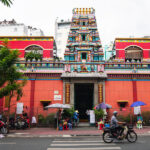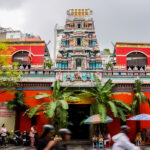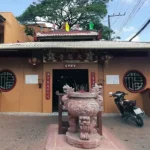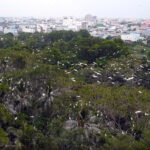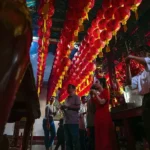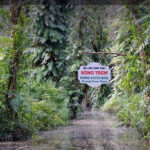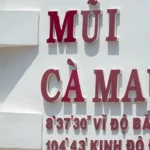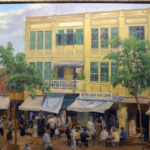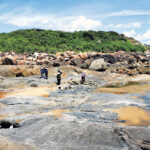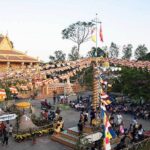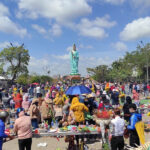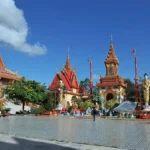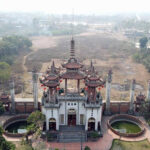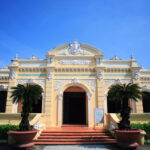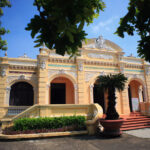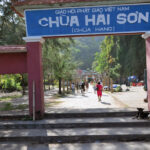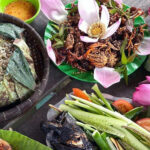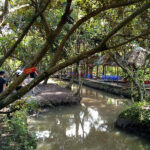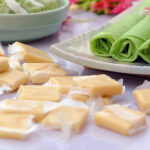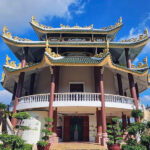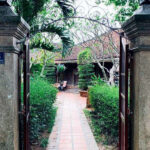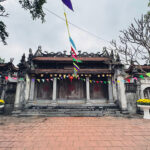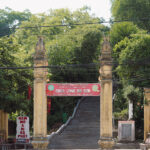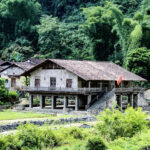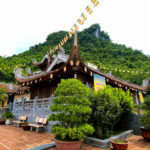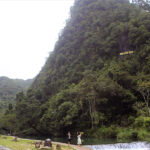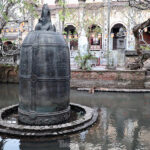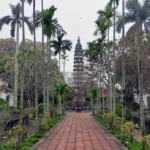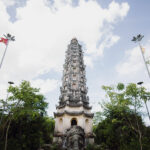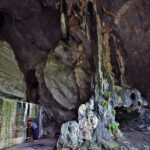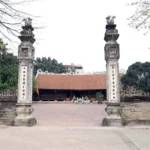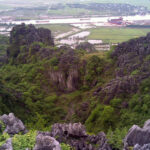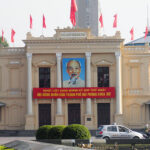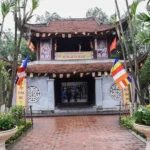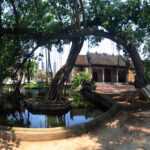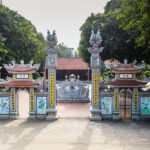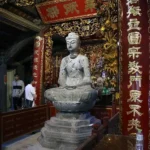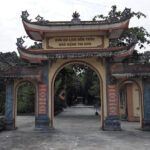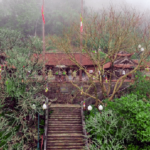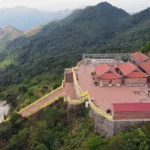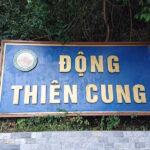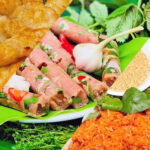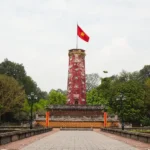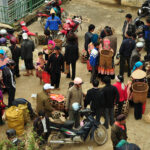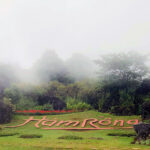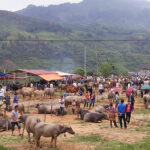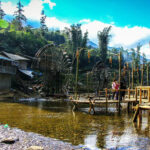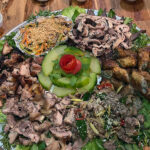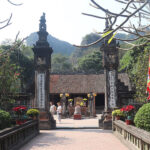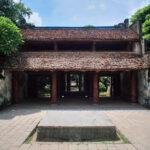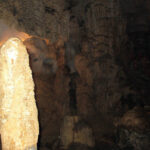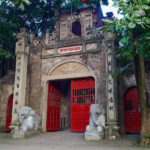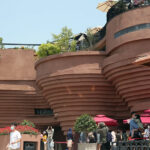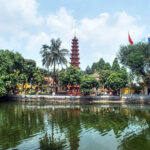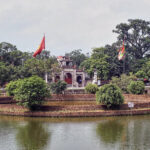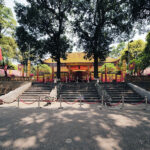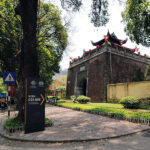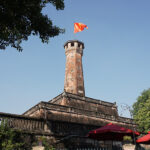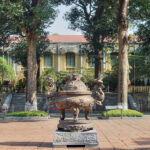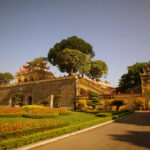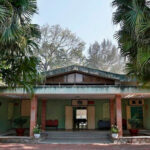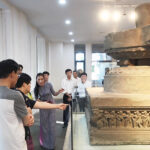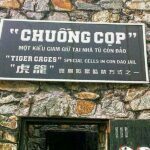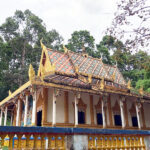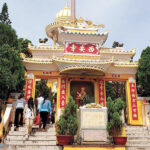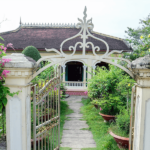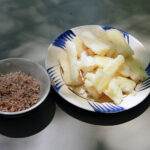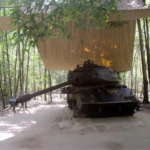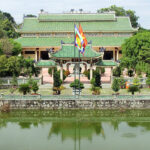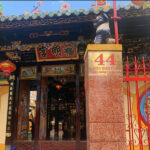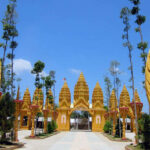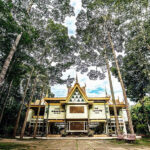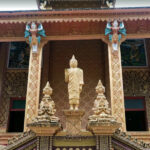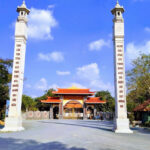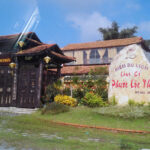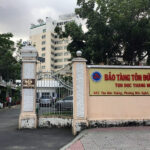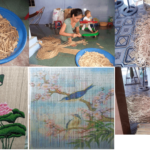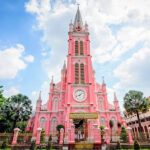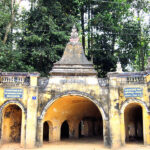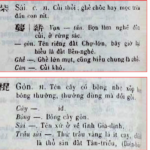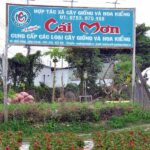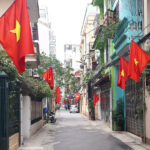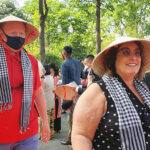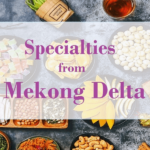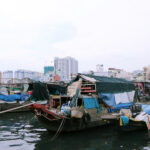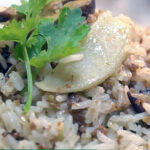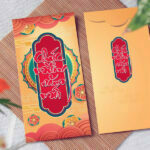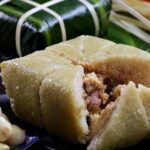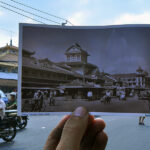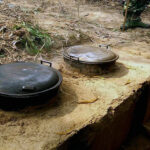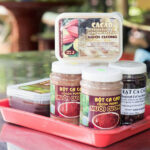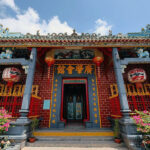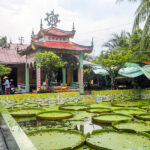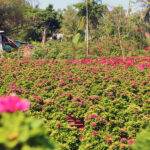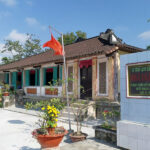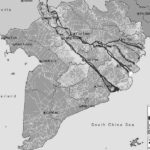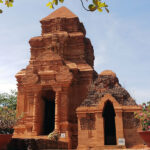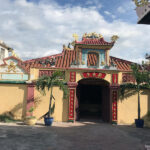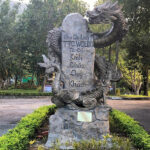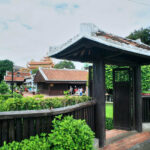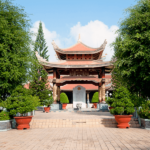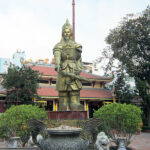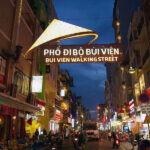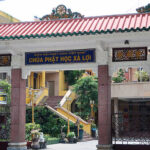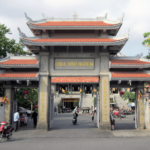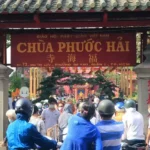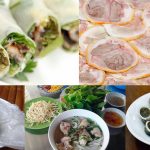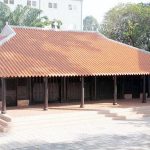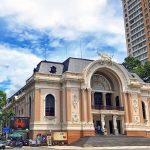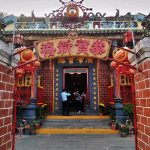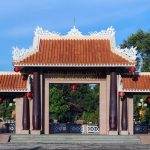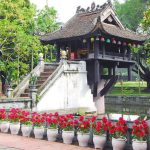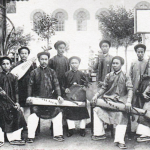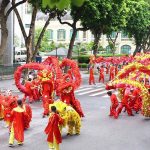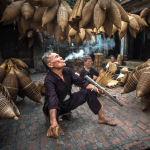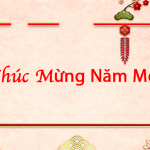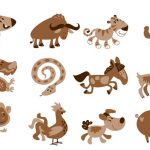Conical hat, (Vietnamese: Nón Lá) is an item used to block the sun, rain, fan and is a typical symbol of Vietnam. It’s closely associated with the Vietnamese people, no gender discrimination, age, status … There are many types of conical hats such as horse hats or Go Gang hats (made in Binh Dinh, made from pineapple leaves, often used when riding a horse head), sport hats (people from Northern Vietnam often use at festivals), hats poem (in Hue, a thin and white leaf-shaped cone with some ornate verses)…but the most common is still a conical cone.
The texture of a conical hat
Perhaps most Vietnamese people from rural to urban areas use “Nón Lá”, but few people pay attention to the structure of the conical hat like what the cone is made of; how many rims and leaves it has; how wide is the glass …
Today’s conical hats usually consist of 16 rings made of small, uneven bamboo. The diameter of the bottom of the cone is about 41cm.
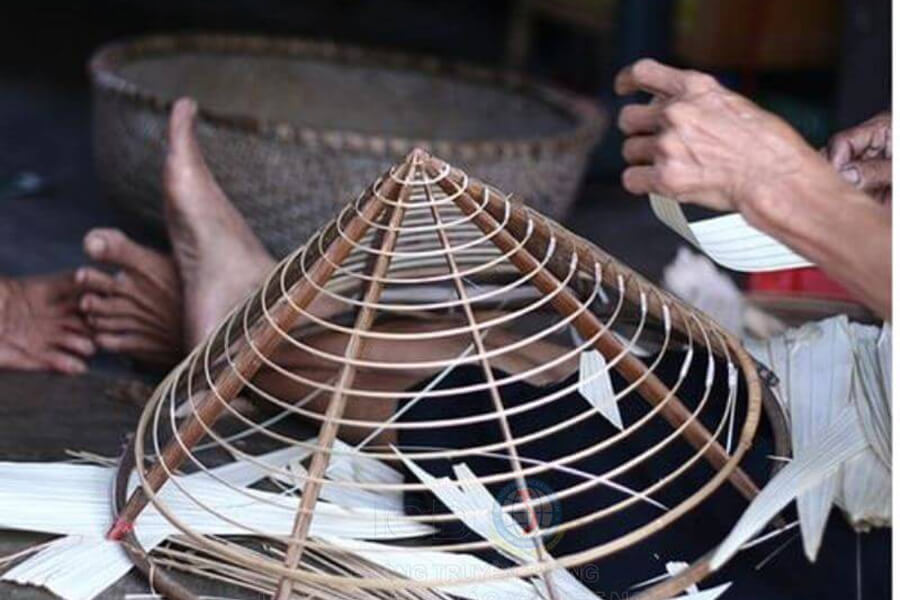
Leaf cones are roofed with 2 to 3 layers of leaves depending on the purpose. For example, the Hue hat uses only two layers of leaves to make the cone slender and to insert internal scenes and verses. The conical hat is made of 3 inner layers will have a leaf lining to make the hat more durable.
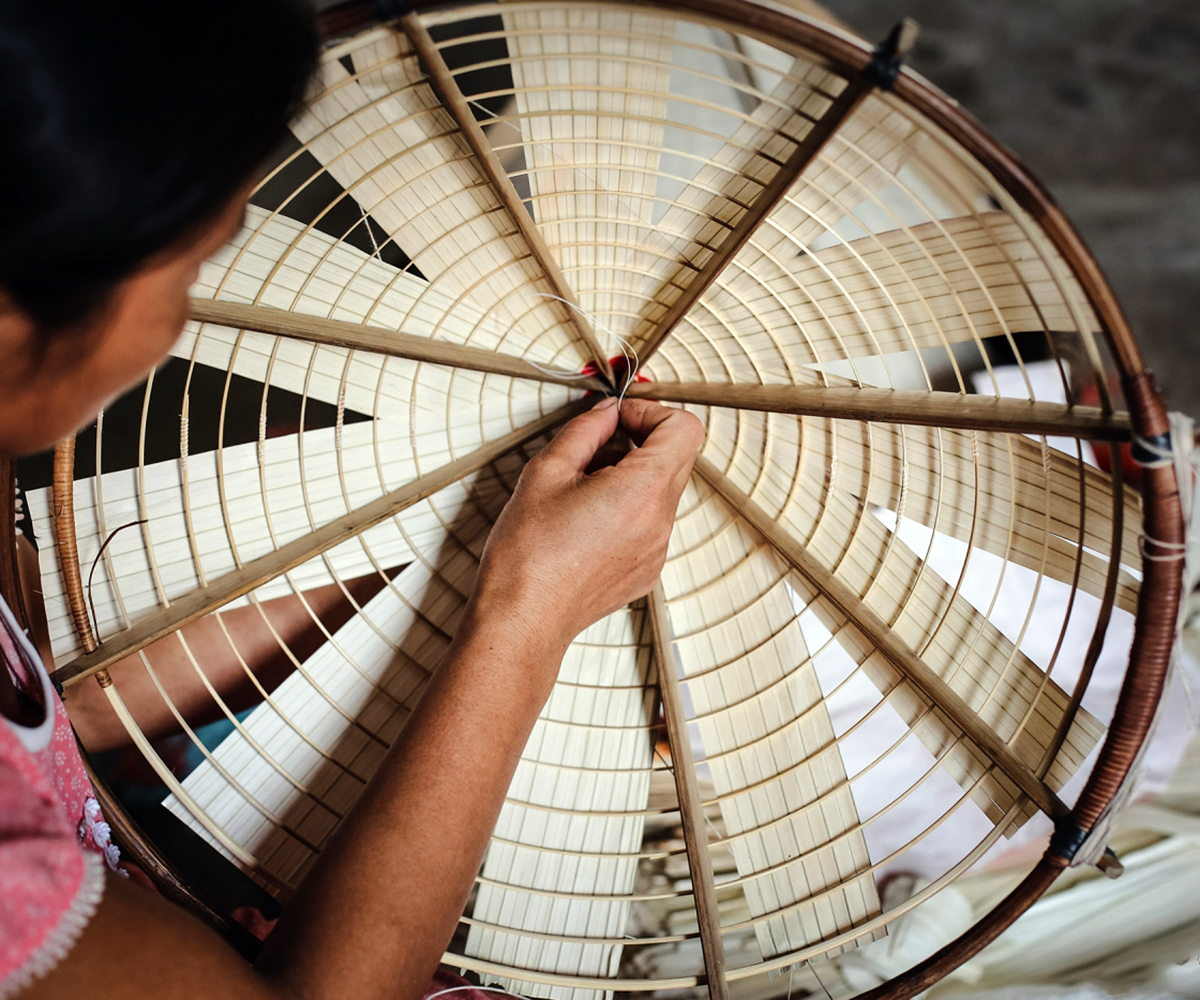
Outside the hat, people also apply more varnish. This oil is usually turpentine mixed with alcohol so that a clear color is applied to the cone to give the cone a shine and prevent water from seeping through the needle holes into the cone.
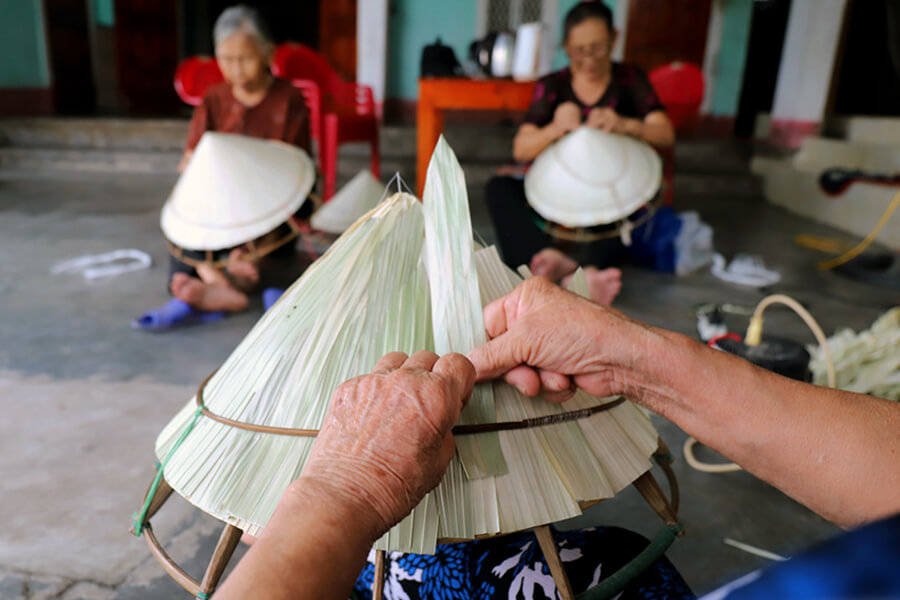
When the hat is complete, people attach to the top of the hat a “mango” made of polished thread to add charm to the conical hat.
In addition, inside the hat, people also make hats on both sides to tie strings. Hats can be tied or not depending on the purpose of use.
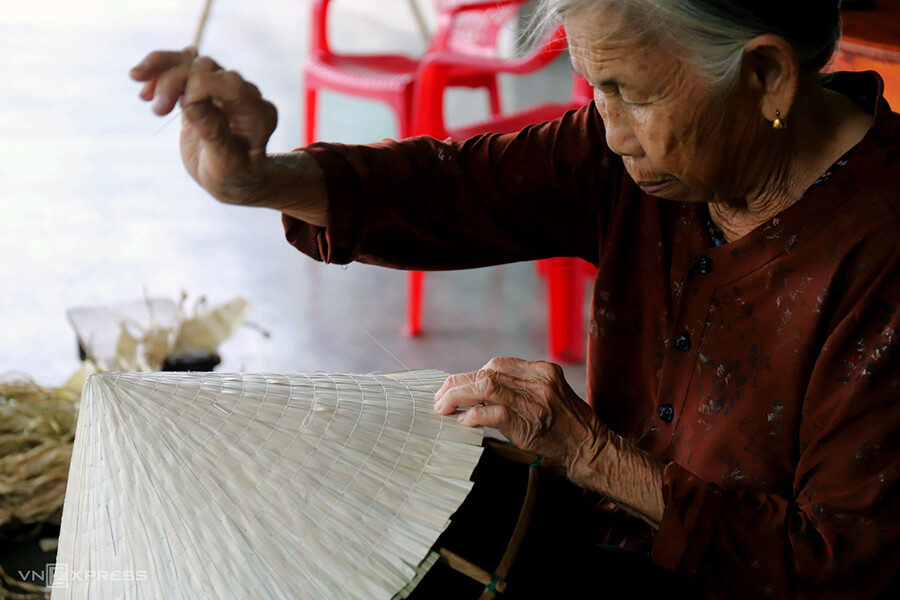
Materials and tools for making hats
Materials and tools for making hats include: leaves, threads and hat frames. The material of a cone is simple but hard to find. Leaves only grow in the mountains, later people bring seeds to plant in the garden.
The cone has a uniform pyramid shape, the wall is surrounded by rims that curl into many layers. Conical hat made of bamboo, round like a frame to support the graceful shape of the hat. At the bottom of the hat there is a curved rim, more rigid than the top hats. Conical hats, hard or brittle hats will determine the strength and durability of hats.
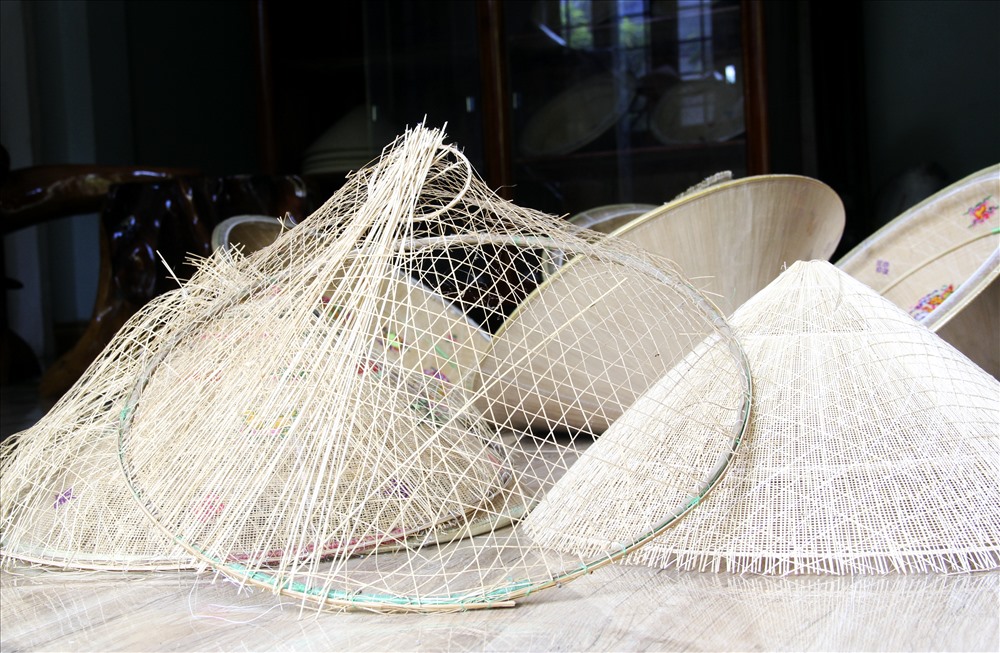
But the most important part of a hat is two layers of palm leaves – the main material to form a hat. Palm leaves must be young leaves, exposed very white. Lined between two layers of palm leaf layer is the core layer, dried, taken from bamboo and neohouzeaua. All materials to make the hat must be waterproof, easy to water to withstand heavy rain, hot and erratic sunny days.
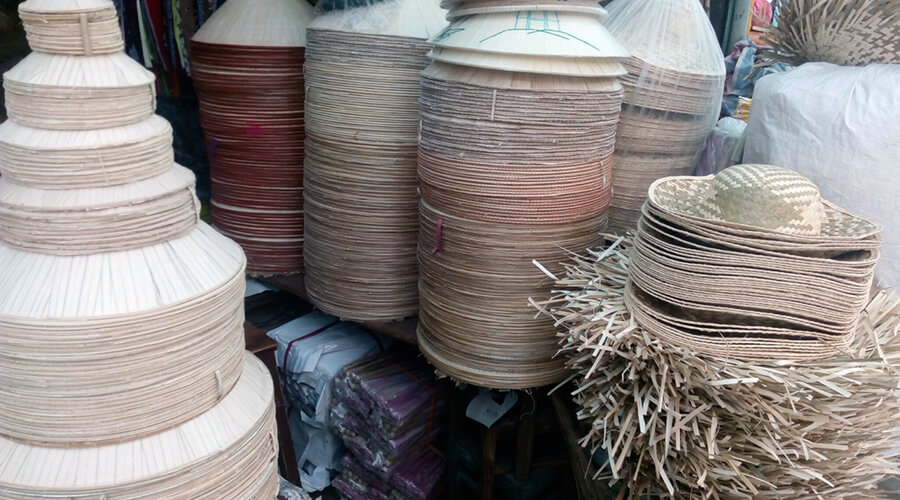
To further enhance the charm, while holding the hat firmly on the wearer’s head, a soft silk strap is attached and two rings attached to the inside of the hat. The hat is woven with durable, beautiful silk threads. People can also decorate ethnic hats with bold patterns or apply a layer of luminous pine oil on the outside of the hat.
Popular types of conical hats in Vietnam
There are many popular types of conical hats, depending on the region and purpose of use. Below are some popular types of conical hats:
- Hue conical hat: this is the traditional conical hat of the Hue region, with a round shape and wide canopy. Hue conical hats are made from banana leaves that are drawn into small spokes and woven to form a cone shape.
- Binh Dinh conical hat: this type of conical hat has the same shape as the Hue conical hat but is smaller and has a more curved border. Binh Dinh conical hats are often made from banana leaves or giang leaves.
- Dong Thap conical hat: this is a popular type of conical hat in the Southwest region, with a flat and wide shape. Dong Thap conical hats are made from leaves of all kinds of plants with small stems, woven and pressed into cone shape.
- Conical hat of the Central Highlands: this type of conical hat is used in the culture of the people of the Central Highlands. The Central Highlands conical hat has a wavy shape and a curved top. This conical hat is usually made from banana leaves or burning leaves.
These are just some examples of popular types of conical hats, depending on the region and industry of use, there are many other types of conical hats as well.
Traditional villages of making conical hat
Many conical hat craft villages in Vietnam were established to preserve the image of conical hats. Each hat will have the characteristics of each region, but the common point is that they are all made by dedicated workers.
In the Northern region, hat making is famous with the Chuong village located about 40km from Hanoi center in Thanh Oai district, Hanoi. Chuong village was born in 1940, and through many generations, they still maintain the traditional model – pointed conical hats. The special feature of Chuong village’s conical hats is that the leaves and white leaves are taken from the hills and mountains of Thanh Hoa and Ha Tinh and then dried in the sun until they turn pale white.
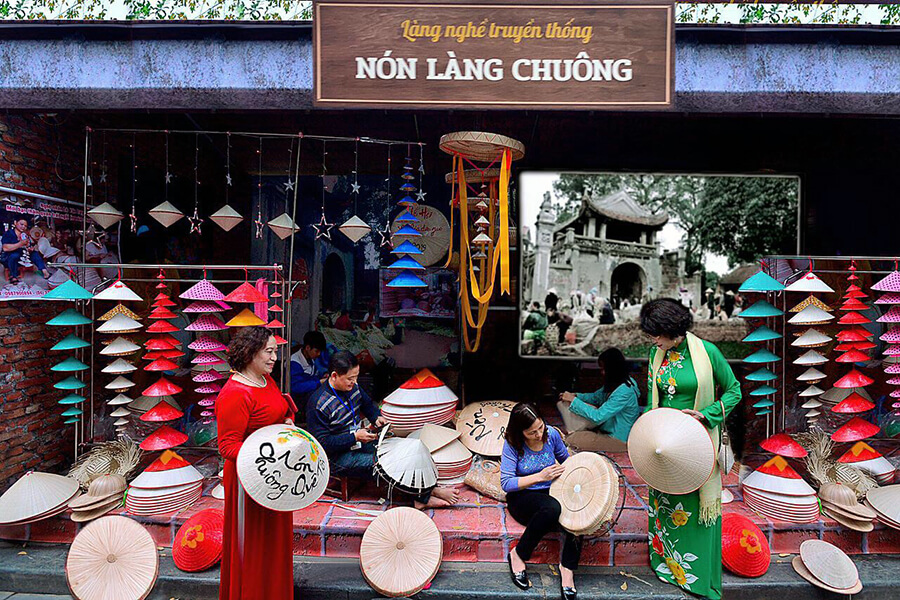
Chuong Village
Moving into the Central region, conical hats develop strongly in the ancient capital of Hue with many conical villages such as Da Le, Phu Cam, Do So… The characteristics of Hue conical products are not just ordinary conical hats but also a form of conical hat. The most unique work of art is the poem hat.
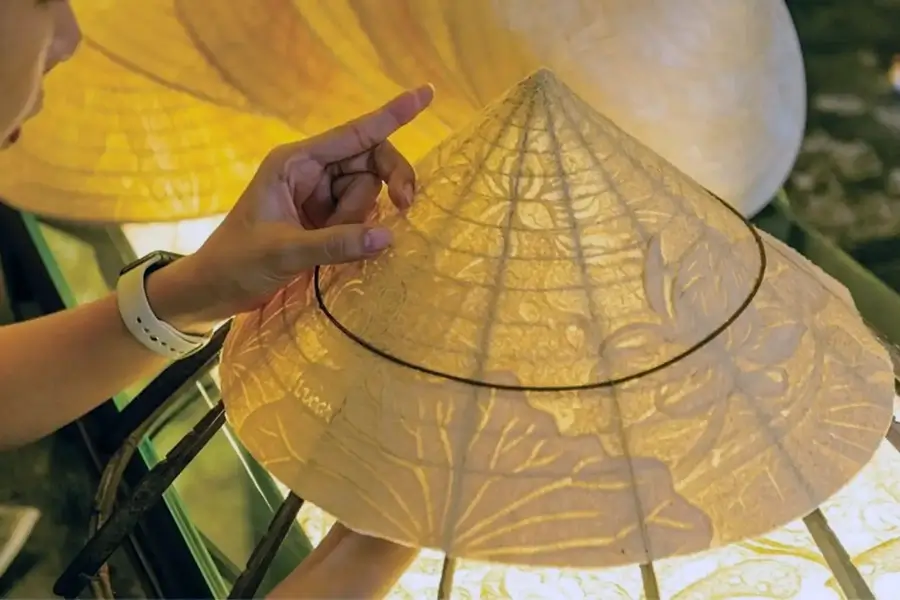
Phu Gia horse hat village (Cat Tuong commune, Phu Cat district) has been exiting more than 300 years old. If the poem hat of Hue with its charming landscape collages and poems nested in layers of leaves creates the gentle, graceful features of a girl, then on the contrary, the Phu Gia horse hat is a symbol of strong. Hats are often covered with silver, engraved, embroidered with patterns based on the themes of Dragon – Unicorn – Tortoise – Phoenix, “Two Dragons fighting over a flaming pearl” … bearing the cultural identity of the martial arts land of Binh Dinh.
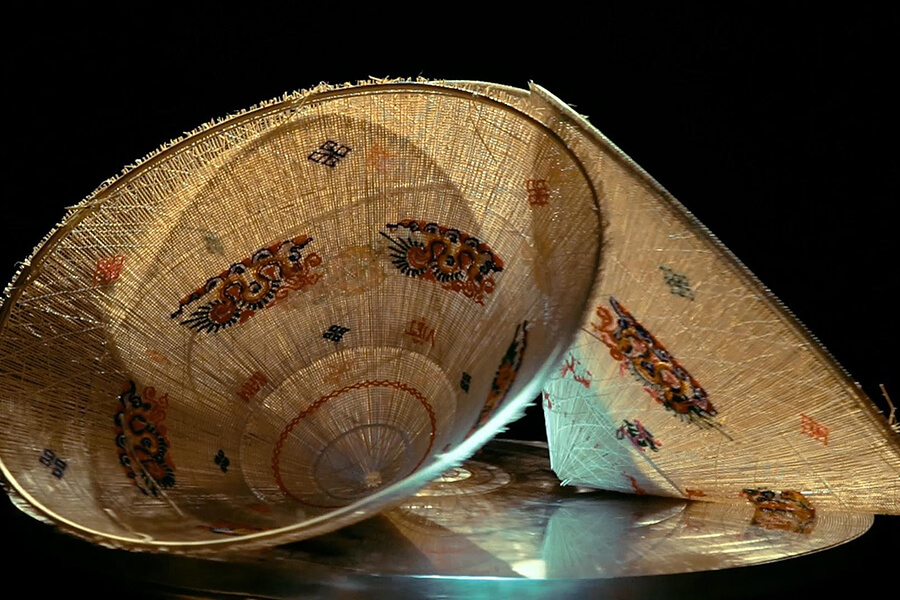
In the South, Thoi Tan hats in Can Tho are about 70 years old, made of local leaves and bamboo trees. This material helps make the hat look smooth and durable. Thoi Tan village people also divide hats into two types: hats for going to the market and hats for going to the fields. Hats for going to the market are more carefully selected in leaf stems, much more elaborate than hats for going to the fields.
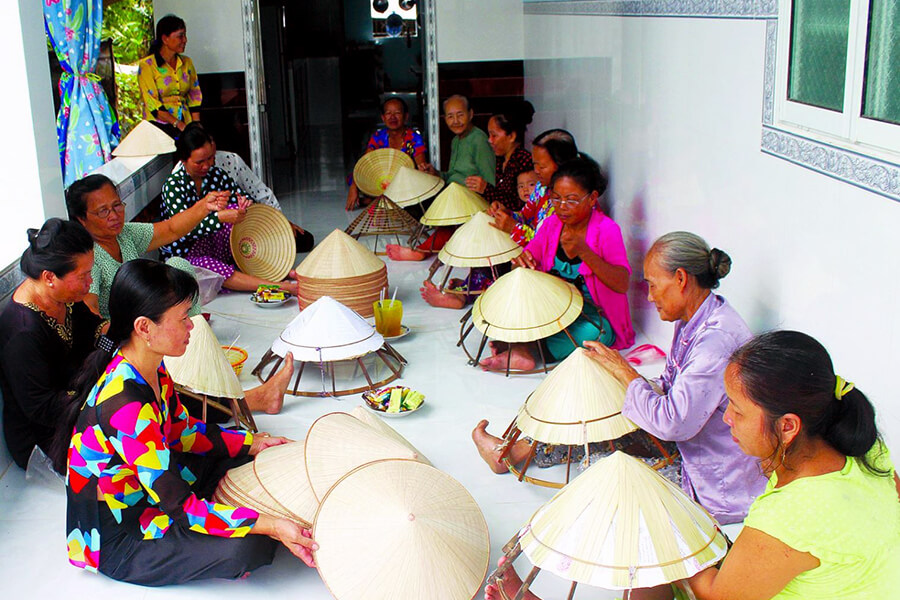
Thoi Tan village
Conclusion of conical hat
Although the conical hat is no longer a daily necessity for women in big cities, it is still very popular in Vietnamese villages. The image of a girl in a long dress and wearing a conical hat is characteristic for Vietnamese girls. Many visitors come to hat villages to witness and participate in the stages of hat making when travel to Vietnam. They were really surprised and excited when the hat worker saved their photos and names on the poem hat as a souvenir. Also, the hat becomes a souvenir of unique culture throughout Vietnam which is popular with tourists


